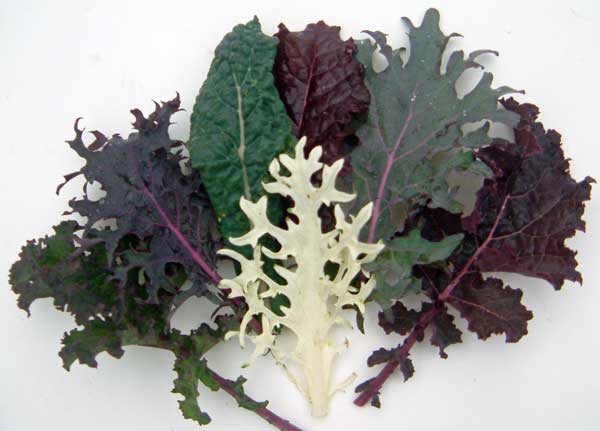

If you didn’t define a New Years Resolution, January is the traditional time of year to consider ways to commence an improved living. This does not mean becoming either affluent or a couch-potato. It means following your mission to progress closer to your vision. Contributing to a more “sustainable” world is a goal I often hear.
But for long-term sustainability, a business requires the lead stakeholders to earn sufficient revenue to:
Too many in the food industry (small farmers, artisanal processors, restaurant chefs, etc.) merely manage to keep the bank statements positive by minimizing expenses. Then they pride themselves in doing everything possible to reduce taxes. However, this leads to long-hours and short-term small-picture thinking.
I like to demonstrate how having sufficient financial records to project cash flow supports more perceptive decision-making. And maximizing profits is more rewarding than minimizing expenses. Yes, lowering expenses is one strategy to increasing profits. But increasing sales from consistent availability provides more options. Even more opportunities come from higher margins. Building your Brand to support higher margins via increased prices is an excellent strategy.
Your Brand is your promise and your ability to provide something more than just a product. Realize that you are already providing many of the services your customer wishes she could do herself:
Since you are already providing most of these services, you just need to periodically remind your customers of this in fascinating ways. Personal discussions, informative packaging, explanatory product lists, and an educational website all provide this. In a nutshell, this is your million-dollar Brand!
I can help you bring this New Year’s Resolution to a Reality.
Now you can receive a 50% rebate.
Our governments place so much value on building the capacity of local food networks that they provide 50% reimbursements for completion of business sustainability projects. This is not offered to curry votes. They know that with better decision-making, local agriculture and food processing become excellent businesses for stable, profitable operations that hire many workers, and eventually start paying taxes.

Businesses and Institutions are offering more opportunities for farmers. In November The Big Carrot Natural Foods Store announced the first annual Natures Finest Fund. For the first year they will give $25,000 in grants to help local farmers to provide extended season produce, specialty grains and pulse, artisanal cheeses, and pastured livestock. The final Proposal date closed on January 6th; but look for additional funds next year. They have asked me to review and clarify the applications in order to help the Approval Committee make the best decisions.
The Ignatius Jesuit Centre has a 600-acre property 2-km north of Guelph with field crops, tree fruits, horticultural crops, hardwood tree nursery, hops, medicinal and culinary herbs, willow propagation for land reclamation, and grass-fed cattle. From time to time they have openings for additional complementary businesses. Until February 4th, there is a Request for Proposals (RFP) for enterprises such as:
Gretchen Bauta, daughter of Garfield Weston, in partnership with the two terrific organizations of USC Canada and Seeds of Diversity Canada, has generously announced the launch of the Bauta Seed Initiative. For a more secure Canadian food system, $150,000 has been allocated for 2014 to support expanded farm production of high quality, biodiverse, regionally adapted, ecologically grown, Canadian seed. Applications for Variety Trials, Capacity Building, or Capital Investments are due by January 10th. Additional requests will be issued for future years.

This has become another January pursuit for those in the food industry. From my readings and my observations, this is what I foresee:
So order your seeds, or ask your favourite farmer to grow these.
While looking through the most recent Canadian census, the annual loss of Ontario farmland figure was startling. This is even more shocking when expressed as: Ontario loses 355-acres of farmland every day! (This is more than one farm every day.) Though not in the census, we know that much prime farmland is being permanently lost to reckless urban expansion for pavement and buildings. But most of this is abandonment from loss of productivity. At this rate, in 100-years there will be absolutely no farmland remaining in Ontario. Is this preposterous?
Looking back 100 years, we know of similar drastic changes that have already happened. Through the practices of “cheap-food” agriculture (which does not include the cost of eroded soil), the average depth of topsoil has fallen from 10-inches to 5-inches. This is particularly concerning after taking into account that crops are seriously weakened when grown in topsoil less than 4-inches deep.
Looking back 100 years, organic matter has also decreased precipitously. Through the practices of “cheap-food” agriculture (which does not include the cost of maintaining carbon in the soil), the average percentage of organic matter has declined from 5% to 2%. This is even more alarming when you realize that crops grown in soils with less than 1% organic matter are so unhealthy they require inordinate quantities of pesticides.
Organic matter is also incredibly important for its water-holding capacity. 100 years ago it took 3-years of wet weather for a region to flood; or 3 years of dry weather for a region to enter a draught. Now it takes less than a year to go from a flood to a drought. A cost of cheap food is higher insurance rates for everyone.
These problems are being experienced around the world – being most pronounced in warmer, drier and more populous regions. I don’t feel it is presumptuous to assume that many conflicts around the world are triggered by losses of farmland. This is yet another cost of cheap food. Please read this very perceptive article in Time magazine.
January is supposed to be a time for a bit of relaxation – a time for visualizing the coming year. Genetic Roulette is a frightening documentary about a topic most of us know precious little about, but is all around us. I find it amazing that our governments remain the prime booster of GM crops. They cost huge amounts to develop, they benefit very few businesses, the public clearly does not want them, and nearly every attempt has failed. The Arctic Apple is the latest flop.
At last year’s Canadian Chefs' Congress I had the distinct honour of spending the evening with Paul Kennedy, host of the remarkable Ideas program on CBC Radio One. While strolling through the historic Nova Scotia Evangeline Fields enjoying the best foods Canada has to offer, we discussed many ideas about our food system. Close your eyes and listen to Jill Eisen in Stuffed, as she explores the politics, economics and science of overeating.
| forward to a friend and suggest signing up to receive this newsletter every month. |